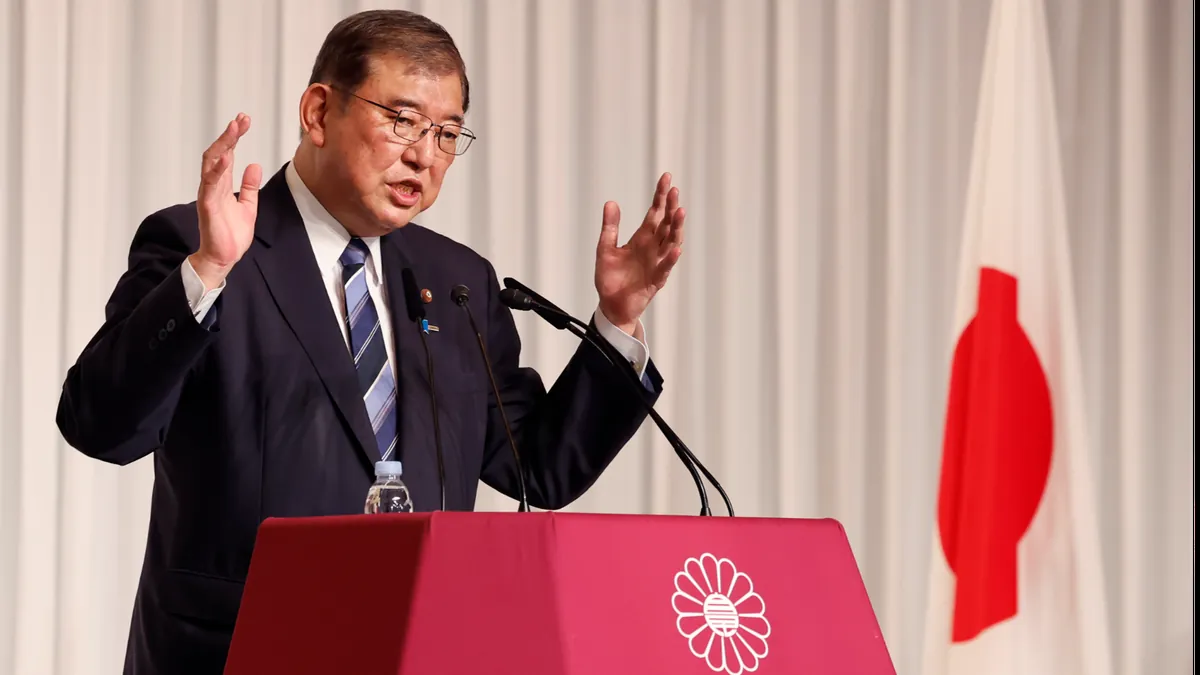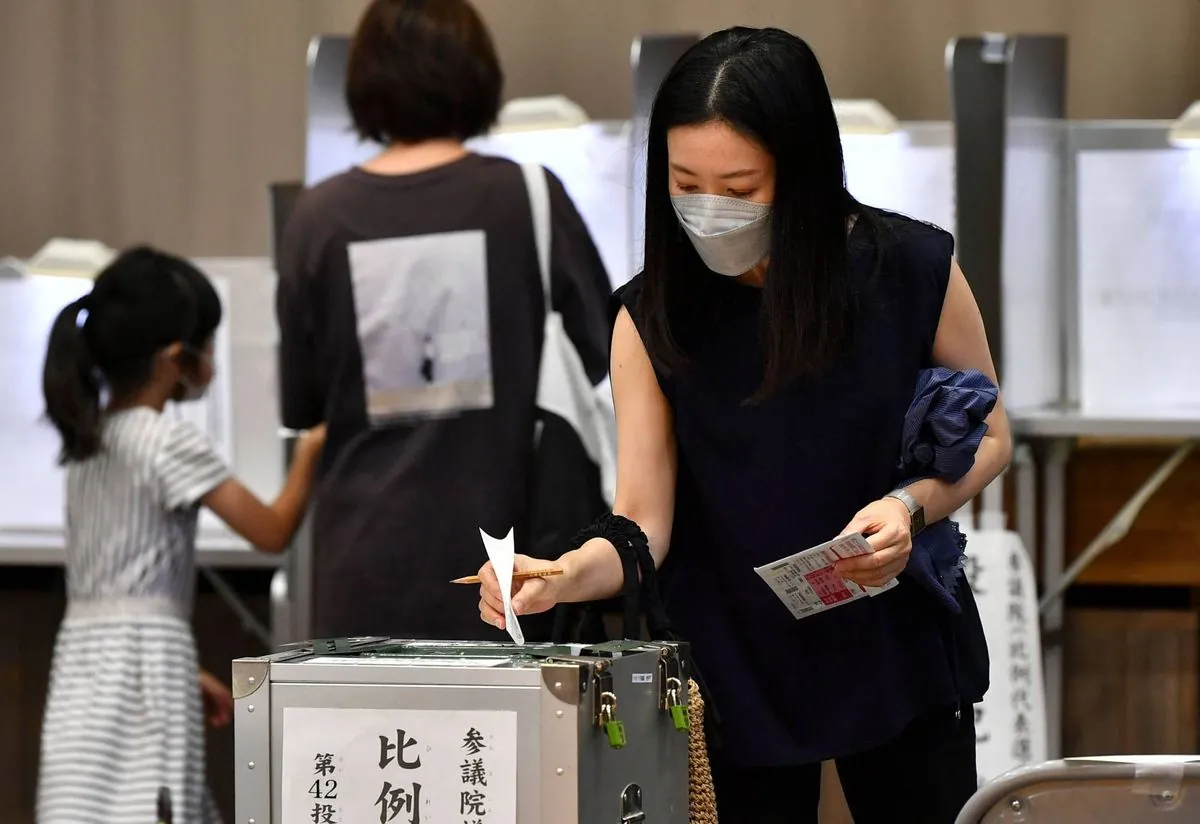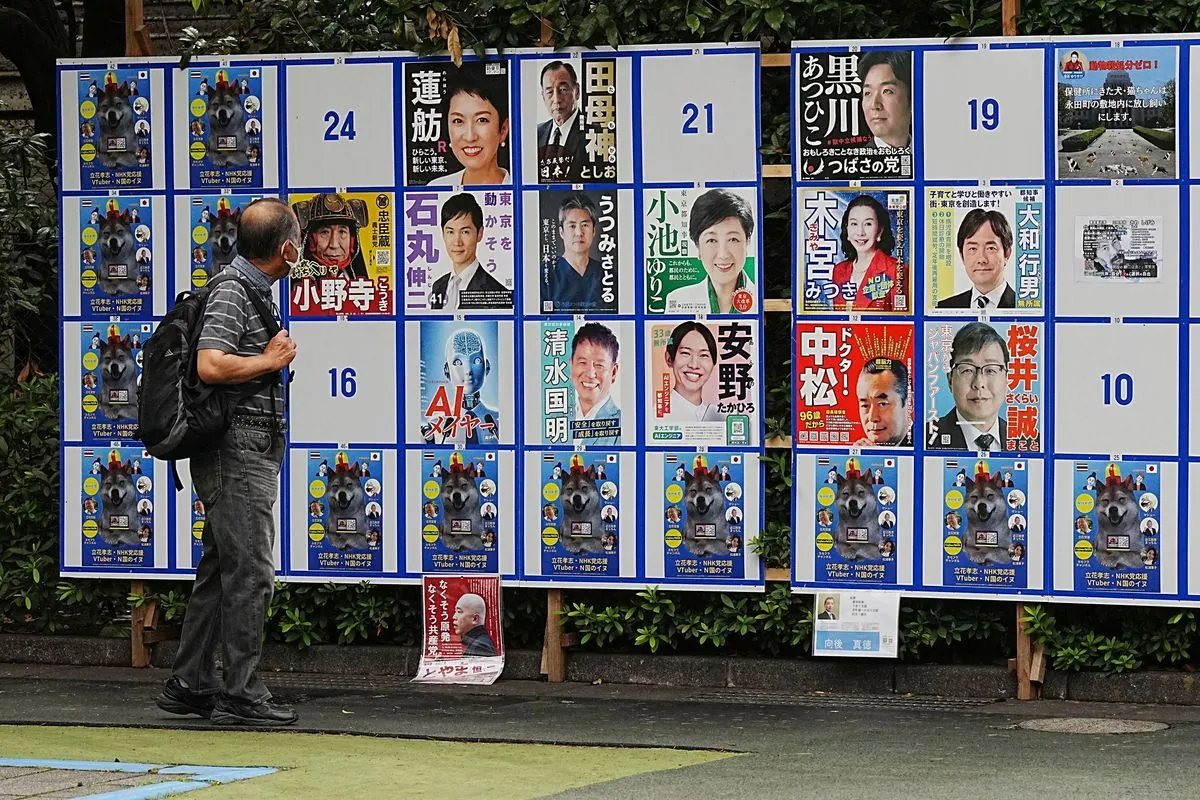Japan's Ishiba Sets October Election, LDP Aims to Retain Majority
Japan's new PM Shigeru Ishiba announces October 27 election. LDP seeks to maintain lower house majority amid recent scandals, facing challenges from opposition parties in a fragmented political landscape.

Shigeru Ishiba, Japan's incoming prime minister, has announced plans for a general election on October 27, 2024. This decision comes as the Liberal Democratic Party (LDP) seeks to maintain its dominance in the lower house of the National Diet, Japan's parliament.
Ishiba, 67, secured victory in the LDP leadership race last week, effectively ensuring his appointment as Japan's next prime minister. The official vote is scheduled for a special parliamentary session on September 30, 2024. His ascension to leadership comes at a crucial time for the LDP, which has faced declining public approval due to recent scandals.
The election timeline is as follows:
- October 9, 2024: Expected dissolution of parliament
- October 15-27, 2024: Official campaigning period (minimum 12 days)
- October 27, 2024: General election day

It's worth noting that Japan's electoral system, reformed in 1994, combines first-past-the-post and proportional representation methods for the lower house. This system has played a significant role in shaping the country's political landscape since its implementation.
The LDP, which has governed Japan for most of the post-war era since its founding in 1955, currently holds 258 out of 465 seats in the lower house. Despite a drop in popularity to 25.5% in June 2024 - its lowest since regaining power in 2012 - the party remains the most supported in Japan's fragmented political arena. A recent poll by public broadcaster NHK showed 31.3% of respondents backing the LDP.
The main opposition, the Constitutional Democratic Party of Japan, formed in 2017, holds 99 seats with a 6.6% approval rating. Other significant players include the conservative Japan Innovation Party, with 45 seats and a stronghold in Osaka, Japan's third-largest city, and the LDP's junior coalition partner, Komeito, holding 32 seats.
The focus of this election is whether the LDP can secure the 233 seats required for a lower house majority. Winning an additional 28 seats would give the coalition an "absolute stable majority" of 261 seats, granting control over parliamentary committees and facilitating bill passage.
"We aim to revitalize our party and regain the trust of the Japanese people through this election."
This election is particularly significant as it comes after a series of scandals that contributed to the resignation of Ishiba's predecessor, Fumio Kishida. The LDP's ability to maintain its majority will be a testament to its resilience and the effectiveness of Ishiba's leadership in the face of these challenges.
As Japan prepares for this crucial vote, it's important to remember that the country has a history of high voter turnout, often exceeding 50%. This engagement reflects the importance of democratic participation in shaping Japan's political future.

The outcome of this election will not only determine the immediate political landscape but also set the tone for Japan's governance as it approaches the end of the current upper house term in July 2025. As the nation moves forward, the interplay between established political forces and emerging parties will continue to shape Japan's democratic process.


































